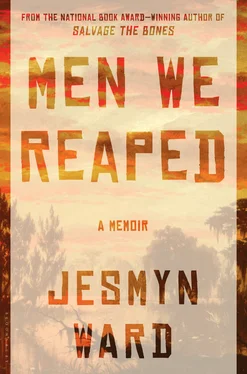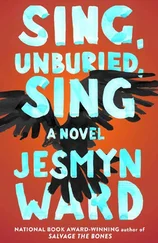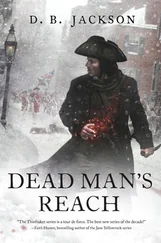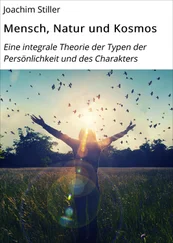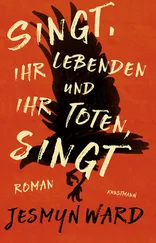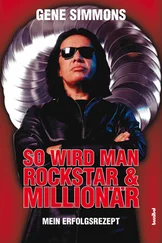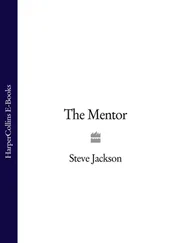My maternal grandmother, Dorothy, remembers when she was very young, before her mother, Mary, and father, Harry, had all of their twelve kids, riding in her father’s old car to visit relatives farther up in the country, north of DeLisle. Harry’s father was a dark, rich brown, but his mother was, by all accounts, White, and her sister lived in a cluster of White communities farther north. Harry’s children ranged from cinammon to nutmeg to vanilla, and on that trip north, the children curled in on themselves in the car’s rumble seat and rode through the hot bright Mississippi wilderness under blankets. Harry was light enough to be mistaken for White. While there, the children played inside the house, and when the sun began to set, my great-great-grandmother’s sister told her, “Well, it’s about time for y’all to be getting down the road.” What she said without saying was: It’s not safe for you here. The Klan are here. You should not be caught out on these roads in the dark . So my grandmother and her siblings folded their small bodies in two and hid under the suffocating blanket again, and a seemingly White man and his White mother drove south to DeLisle, to the mostly Creole, mixed-race community they called home.
My mother’s paternal grandfather Adam Jr.’s family also bears stories like this. My mother has a picture of Adam Jr.’s father, Adam Sr., and he looks White. In fact, he was half White and half Native American. Adam Sr.’s father was Joseph Dedeaux, a White man, in a family of White Dedeauxes that had some money and owned some of the most beautiful land in DeLisle. The land sits in the curve of the bayou and is graced by almost unbearably grand live oaks. The sun sets over the marsh grass and water, turning it into a tableau so gorgeous it haunts my homesick dreams. This White man fell in love with his Native American housekeeper, and he began a relationship with her. When his family found out, they disowned him. So Joseph married Daisy and bore my great-grandfather. Later, my mother told me that Joseph and Daisy established a general store, where my White great-great-grandfather would die, a victim of a shooting and a botched store robbery. My Native American great-great-grandmother followed him a few years later from illness.
My mother’s maternal great-grandfather, Jeremy, also was fairly wealthy. It is rumored that his wife’s people came from Haiti but that he was a Native American. When he realized that the White government would do nothing to educate his children and grandchildren, he built a one-room school on the land he owned and hired a teacher. He also spent some of his time out in the woods on his multi-acre property, tending to liquor stills, which was a common pastime in the community during Prohibition. One of those days, he and his son-in-law Harry were working them together, and the Revenues found them. I imagine these White men wearing white shirts and dark pants, their hair lank and sweaty, their guns smooth and cool in their moist hands. Harry ran and escaped, and would later live to hide his children under blankets to take them upcountry to visit their White relatives, but my great-great-grandfather Jeremy was shot and killed. The Revenues left his dead body to grow cold in the green reaching woods among his ruined stills, and once Harry told them what had happened, his family trekked into the forest to retrieve his body.
My father’s father was called Big Jerry, and Jerry and his siblings and their mother, Ellen, lived across the street from St. Stephen’s Church in a small, square house, painted slate blue. My paternal great-grandparents owned a couple of acres along St. Stephen’s Road, and when my father was younger, the fields were planted with corn and crops, and there were horses.
My mother’s father, Adam Jr., lived in another small house, but this one at the end of an even narrower road that runs parallel to St. Stephen’s on the north. There’s a slight hill north of St. Stephen’s, the kind of gradual incline that can go unnoticed unless one is hauling a load or riding a bike; the road that leads from St. Stephen’s and ascends this hill was aptly named Hill Road, and the small road that branches off Hill Road and runs perpendicular, barely wide enough for one car to drive on, is Alpine. My maternal great-grandparents’ long and narrow house is at the end of this road, modest and well-kept and gray. This is where my great-grandmother Maman Vest lived.
Both great-grandmothers were olive-complexioned and had white and black salt-pepper hair. Both had thick Creole French accents. I mostly visited Mother Ellen with my father. I never met her husband, my great-grandfather, but my father says he was shot after some sort of argument and died young. Mother Ellen had a loud, strong voice, and she was funny, like my father. She sat whole afternoons on her porch, watching the comings and goings of the neighborhood, and drove well, but slowly, into her old age. When we visited, she sat on the steps of the front porch and told us stories about her youth, when she and her siblings pulled Spanish moss from the oak trees to stuff their mattresses. They were hard workers then, accustomed to long hours weeding and planting and harvesting fields, and caring for livestock. Maman Vest would never sit on a stoop with us: she was a bit more proper, a bit more reserved, but we would all sit in the cool shade of her dark porch, where the children ate cake and listened to the grownups gossip. Maman Vest told us stories of her dead husband, Adam Senior, who she said had visited her once after he died as she lay in her bed. He stood, framed in the doorway, and spoke to her. She said she was afraid, that she was paralyzed and could not move. I never met her husband, my great-grandfather Adam Senior, the man or the ghost. Maman often told us stories about him, her dead husband, but never spoke of Aldon, the lost son who died in Vietnam after stepping on a land mine.
Men’s bodies litter my family history. The pain of the women they left behind pulls them from the beyond, makes them appear as ghosts. In death, they transcend the circumstances of this place that I love and hate all at once and become supernatural. Sometimes, when I think of all the men who’ve died early in my family over the generations, I think DeLisle is the wolf.
I like to think my parents met somewhere in the middle, somewhere in the wide swath of woods that separated their fathers’ houses, or perhaps on St. Stephen’s Road, which was then hard-packed red dirt. They would have both been barefoot, I think, and it would have been the late fifties. My father would have seen a thin olive-skinned girl with small bones and a narrow nose, her dark brown curly hair smoothed to her head. She would have smiled, and her face, beautifully symmetrical, would have blossomed. She would have been happy to be free for a day with her siblings, free to play. Because my grandmother Dorothy worked so much to support her children, my mother tended to household chores and her younger siblings. My father may not have been able to see her strength then, but it was there. My mother would have seen a boy the color of pecans, his hair darkest black and smoothed straight back from his wide, short forehead, his nose wide and prominent, his cheekbones even then like large rocks in his face. He may have been wearing an eye patch. His older cousin shot him in the left eye with a BB gun by accident when he was six, and the eye shriveled in his face and turned gray. It would be some time before it was removed and a false eye put in its place, so my father spent much of his childhood and teenage years wearing a patch. Like all children, they were the children of history and place, of southern Mississippi and Louisiana, both their family lines mixed with African, French, Spanish, and Native ancestry all smoothed to the defining Black in the American South, but even though they would have seen that history bearing fruit in each other, they would not have been thinking about that.
Читать дальше
